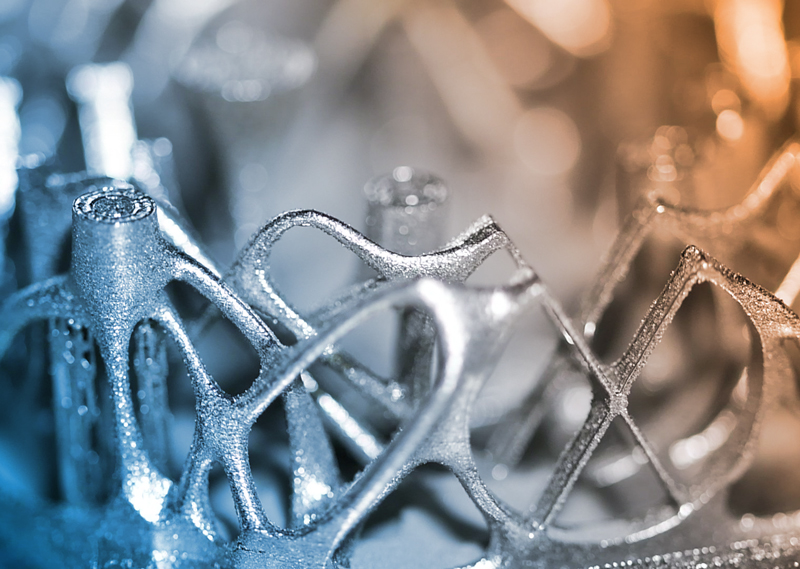Powder-bed-based processing of amourphous metals

The aim of the project was to additively manufacture lightweight aerospace applications such as tanks or solid-state joints from amorphous metals.
Amorphous metals have outstanding properties such as extremely high strength, which make them particularly suitable for use under difficult conditions. At ifw Jena, the advantages of the material are now to be combined with the benefits of additive manufacturing processes. It is particularly important that the material properties are not impaired by processing in the powder bed.
The relatively new material class is being characterized in terms of material technology in various tests and suitable parameters for processing in the powder bed are being found. In this way, various test specimens are being created in the project, which are oriented towards different applications in lightweight construction and aerospace.
The particularly high strength of amorphous metals has already been demonstrated in burst pressure tests on tanks. With wall thicknesses of 0.4 to 0.7 millimetres, which can be achieved using additive processes, the material withstood pressures of up to 316 bar.
In the production of solid-state joints, which have to withstand high loads with thin wall thicknesses, the good surface quality in particular was demonstrated. While the roughness of titanium components is between 10 and 20 micrometers without post-processing, a roughness of only 8 micrometers was demonstrated on samples made of amorphous metals directly after removal from the system. On the one hand, this ensures the necessary strength, especially for components with low wall thicknesses, but can also minimize complex post-processing processes for industrial applications.
The investigations in the project mean that amorphous metals can be used for various applications in aviation, for lightweight components and also for medical and chemical purposes.
The project is funded by the Federal Ministry for Economic Affairs and Energy in the INNO-KOM program.


